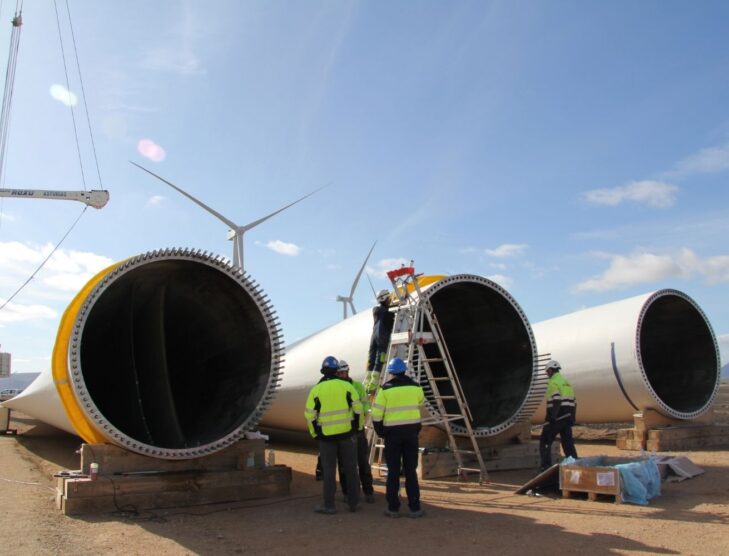
Enel and Eni announce joint development of hydrogen projects
Global energy sector leaders Enel and Eni are working together to develop green hydrogen projects. The two partners are planning to produce green hydrogen through electrolyzers powered by renewable energy. The electrolyzers will be located near two Eni refineries where green hydrogen appears to be the best decarbonisation option.
Each of the two pilot projects will feature an electrolyzer of around 10 MW and are expected to start generating green hydrogen by 2022-2023.
“We are interested in exploring with Eni the promising green hydrogen sector. Together, we identified a couple of sites where we can start with the first projects. The overall system we have in mind will be working as a closed loop whereby the electrolyzer fed by renewable energy and the refinery will be at the same location, therefore avoiding the construction of complex transport infrastructure to move hydrogen around. We are looking forward to seeing green hydrogen supplying Eni’s refinery and biorefinery processes, and are working to have the first operating system in place before the end of our current three-year plan,” said Francesco Starace, Enel Group CEO and general manager.
“This partnership in green hydrogen is part of Eni’s broader energy transition strategy. Our goal is to accelerate the reduction of our carbon footprint by implementing the best applicable low carbon solution, either green or blue, to reduce our direct emissions as well as switching to bio products to supply our clients,” said Claudio Descalzi, Eni CEO.
In the green hydrogen segment, the Enel Group is also developing projects in Spain, Chile and the United States. Should the expected economic improvements of the green hydrogen industry be confirmed, the Group plans to grow its green hydrogen capacity to more than 2 GW by 2030.
In the hydrogen segment, Eni is also studying other projects in Italy and in the UK. The present agreement between Eni and Enel could be subject to subsequent binding actions that the parties involved will define according to applicable law, including that which regulates operations among related parties.
Enel is a multinational power company and a leading integrated player in the global power, gas and renewables markets. It is the largest European utility by ordinary EBITDA, and is present in more than 30 countries worldwide, producing energy with more than 87 GW of installed capacity. Enel distributes electricity through a network of more than 2.2 million kilometers, and with more than 74 million business and household end users globally.
The Enel Group has the largest global customer base among its European peers. Enel’s renewables arm Enel Green Power is the world’s largest renewable private player, with more than 47 GW of wind, solar, geothermal and hydropower plants installed in Europe, the Americas, Africa, Asia and Oceania. Enel X, Enel’s global advanced energy services business line, is the worldwide demand response leader, with a total capacity of more than 6 GW managed globally. The company has installed around 116 MW of storage capacity as well as, in the electric mobility sector, it has made available around 140,000 public and private EV charging points worldwide.
Eni is an energy company operating in 66 countries worldwide and employing around 32,000 people. The company operates in oil and gas exploration, development and production, refining and marketing, trading and shipping, chemical, renewable energies and innovative solutions in circular economy. Eni’s mission is inspired by the UN 2030 Agenda and these values are reflected in its business model based on three pillars of long-term carbon neutrality, operational excellence and the creation of alliances for local development. The new Eni is based on efficiency, integration and the deployment of new technologies. Decarbonisation is structurally embedded in Eni’s overall strategy and ambitions. In Sustainalytics’ last update as of September 2020, Eni has achieved a ESG Risk Rating score of 25.7, ranking in the top 3% amongst its peers in the energy sector.









